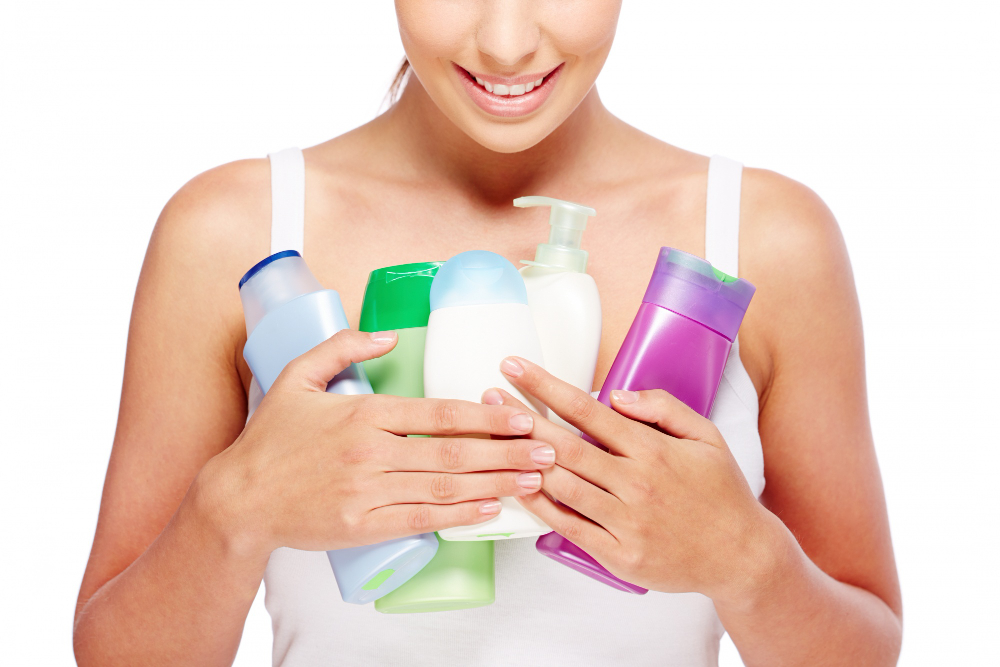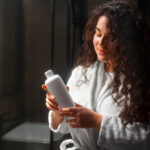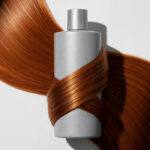The market is full of different types of shampoo, and finding the right one can feel overwhelming. From boosting shine to controlling frizz or protecting color, each shampoo has a unique formula to target specific hair concerns.
Even here at Haste Urban Hair Spa, new brands can address hair concerns such as a lack of shine, volume, or texture. While each formula benefits hair health and styling, you can still find quality shampoos that keep hair and scalp looking good.
These hair products keep your hair cleaner and hydrated for longer, but how do you choose one that works best for you?
As one of the best scalp therapy salons in Medford, MA, we are here to help you understand the different types of shampoos, how they work, and which one you should choose.
Types of Shampoos
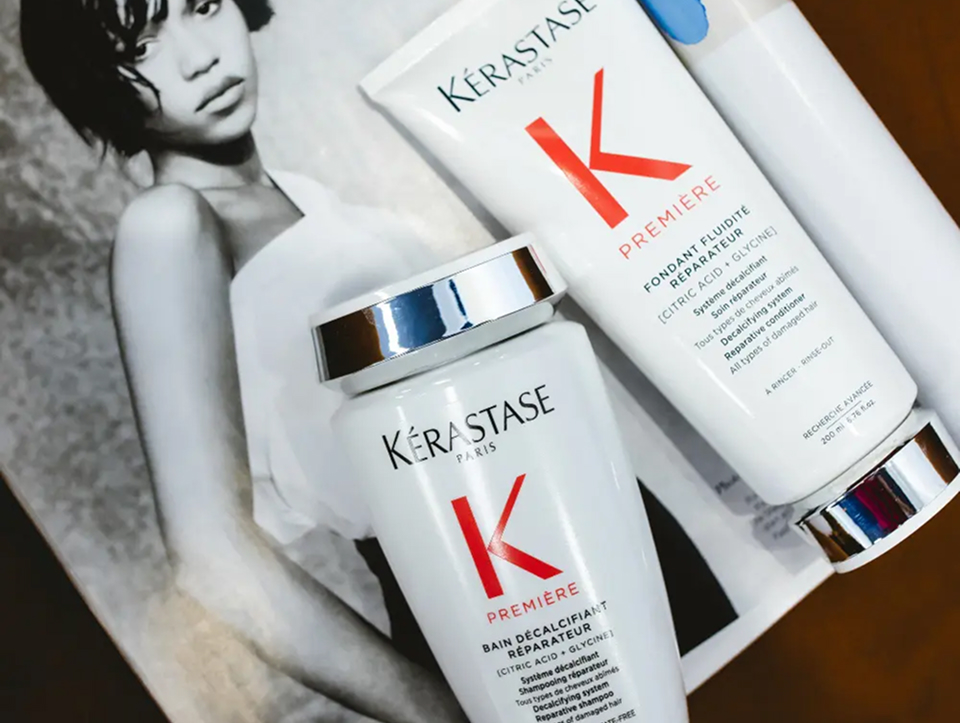
1. Anti-Breakage Shampoo
When you have split ends or excessive hair shedding, we recommend you use an anti-breakage shampoo. The same applies if you have dyed, permed, relaxed, or bleached your hair.
These shampoos have a special formula that can include:
- Biotin
- Keratin
- Argan Oil
- Panthenol, also known as Vitamin B5
- Ceramides
- Niacinamide
These ingredients strengthen hair strands, reducing breakage while improving hair resilience during washing and styling. They also moisturize, repair surface damage, and minimize frizzing and tangling.
💡 Tip: Use with conditioner and a deep mask; regular use strengthens hair strands and prevents tangling.
2. Anti-Frizz Shampoo
At our hair wellness spa, we recommend using an anti-frizz shampoo regularly to help tame frizz. Some causes of frizzy hair:
- If you have dry hair, it craves added hydration
- You use hair products that contain sulfates
- Your hair goes through excessive friction against clothing
- You have a damaged hair cuticle, and it becomes a challenge for it to absorb and retain moisture
Another problem is that humid climates can trigger frizz, and if your hair is dry, it absorbs all available moisture to compensate for the lack of moisture.
💡 Tip: To combat frizzy hair, use a silicone—and sulfate-free shampoo to nourish your hair from the inside out. This will help preserve and protect your natural hair texture from the environment.
3. Clarifying Shampoo
When you visit us for a professional scalp analysis, and we determine that your hair is greasy or your scalp feels itchy, we recommend a clarifying shampoo. The same applies if your curls look limp or your product is no longer working.
When we do a scalp treatment, we sometimes use a clarifying shampoo to help remove buildup from your hair. Think of it as a reset button for your scalp and strands, giving them a deep clean.
Unlike your regular shampoo, these hair care products contain more potent cleansing agents like:
- Sodium lauryl sulfate
- Ammonium-sodium laureth sulfate
- Acidic ingredients (like acetic acid from vinegar or citrus extracts)
These ingredients help to remove heavy residue. Still, how often you should use them at home depends on the following:
- Oily scalp or product-heavy routine: once a week
- Dry, curly, or color-treated hair: once every 2–4 weeks
- Swimmers or athletes: 1–2 times per week
4. Color-Treated Shampoo

Whether you visit us for balayage or any other color treatment, we recommend using a color-treated shampoo. These shampoos feature a special formula designed to protect chemically treated or colored hair.
These shampoos are sulfate-free, have a low pH formula, and contain moisturizing ingredients. Pair your shampoo with a color-protecting conditioner and rinse your hair with cool water.
👉 Read our detailed article here for a more detailed explanation of what color-treated shampoo to choose. There are different types available.
5. Curl-Defining Shampoo
A curl-defining shampoo is excellent for wavy hair (2A-2C), curly hair (3A-3C), or coily hair (4A-4C). With the shampoo, you can enhance, hydrate, and shape your natural curls to reduce frizz and keep them hydrated.
Instead of only cleaning your hair, it helps to bring out your natural curl pattern, giving it a more defined look. When used at home, we recommend you do the following:
- Use lukewarm water, as it helps prevent dryness and frizz.
- Pair your shampoo with a curl-defining conditioner, or use a curl cream.
- Use a wide-tooth comb or your fingers to detangle your hair while the conditioner is in.
- Allow your curls to air dry, or use a diffuser attachment to blow-dry your hair.
You can also consider co-washing between your shampooing sessions to keep your hair hydrated.
6. Dandruff Shampoo
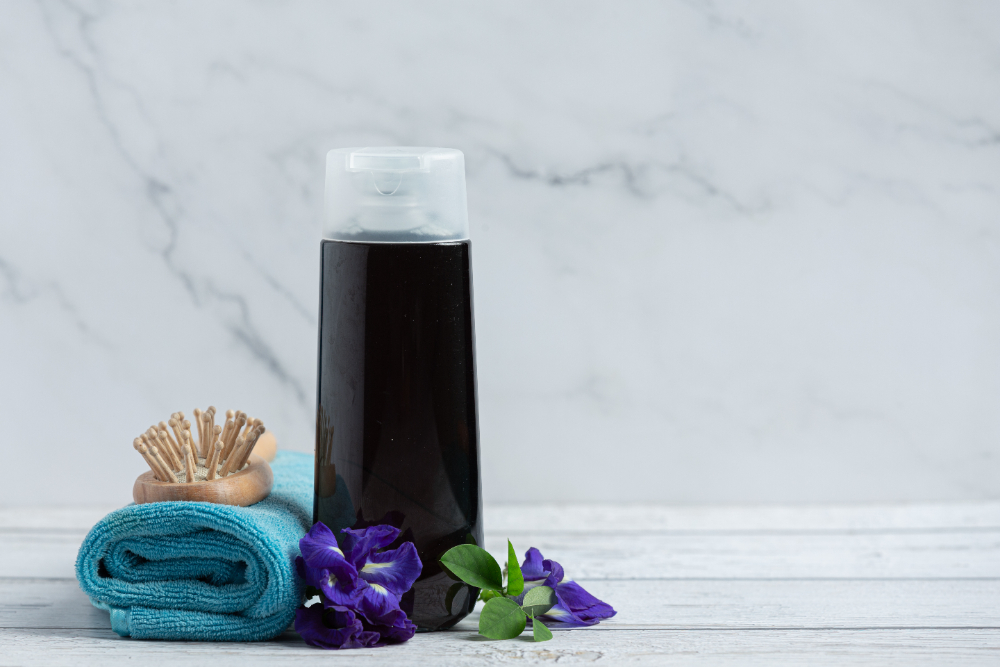
At Haste, we offer the best scalp treatment for dandruff and flakes. Between treatments, you can also invest in a dandruff shampoo at home.
The formulation treats and prevents dandruff. It contains active ingredients to target the Malassezia fungus and help with scalp inflammation. The shampoo removes the flakes, controls fungal growth, soothes the scalp, and helps reduce itchiness.
Still, when it comes to choosing one, you must consider a few things:
| Scalp Type | Best Ingredient(s) |
| Oily + Flaky | Selenium sulfide, ketoconazole |
| Dry + Flaky | Zinc pyrithione, tea tree oil, salicylic acid |
| Severe Dandruff | Coal tar, ketoconazole |
| Sensitive Skin | Fragrance-free zinc or tea tree blends |
👉 Explore these amazing shampoos for dry scalp
7. Detox Shampoo
Is the detox shampoo the same as a clarifying shampoo? While they might have the same purpose, a detox shampoo removes impurities from your hair and scalp.
When you visit us for a scalp detox in Massachusetts, we will use a detox shampoo to help purify your scalp and remove oil, dandruff flakes, and styling product buildup. The shampoo also helps unclog hair follicles and remove toxins and pollutants.
Furthermore, you should use a detox shampoo as follows if you have the following scalp concerns and hair:
- Oily scalps or heavy product users: 1–2 times per week
- Dry or curly hair: Every 2–4 weeks
- Before a treatment or hair coloring session: Once before getting your coloring session
Another important note is to avoid overusing these shampoos, as they can dry out the hair. Instead, follow them up with a hydrating conditioner or a deep mask.
8. Dry Shampoo

If you don’t wash your hair daily, use dry shampoo between washes to help absorb excess oil and refresh your hair. Dry shampoo comes in two forms: aerosol spray and powder. Both work similarly, as they contain oil-absorbing ingredients.
These shampoos are ideal for individuals with oily roots, particularly those who can’t wash their hair daily. They also help add volume and texture to fine hair. Still, it’s worth noting that they don’t clean your hair and won’t remove product buildup from sweat.
You should not replace it with your regular shampoo, as overusing it can lead to clogged follicles, scalp buildup, and irritation.
9. Hydrating Shampoo
We recommend hydrating shampoo for dry, brittle, frizzy, curly, wavy, coily, color-treated, or chemically processed hair. The shampoo will moisturize your dry hair and also wash away buildup.
These types of shampoos will:
- Cleanse your hair without stripping natural oils
- Replenish the moisture and soften the texture
- Improves elasticity to help reduce breakage
- It prepares your hair for conditioning and other treatments
Hydrating shampoo pulls more moisture into the hair shaft than a moisturizing shampoo. Use it with your leave-in conditioner, hair mask, oil, and heat protectant.
👉 Worthy Read: Is Shampoo Bad For Your Hair?
10. Moisturizing Shampoo
Invest in a moisturizing shampoo to lock in moisture, make your hair more manageable, or soften it. It’s ideal for dry, frizzy, heat-damaged, or color-treated hair—the shampoo helps lock in moisture to keep it hydrated and healthy. You can combine it with a moisturizing conditioner, leave-in cream, serum, hair oils, or masks for ultimate softness.
11. Scalp Care Shampoo
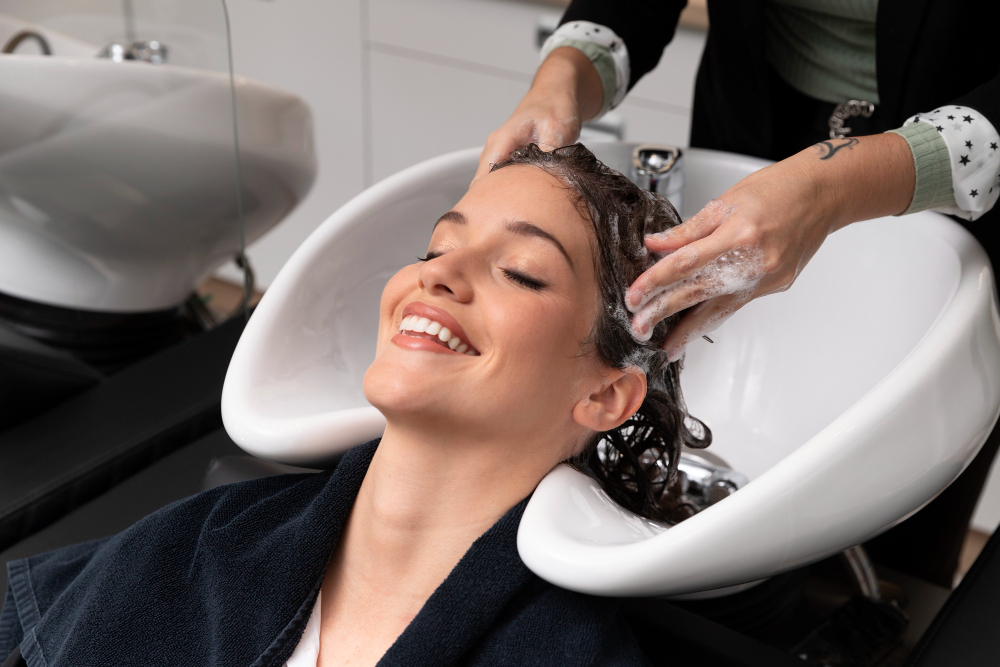
Now, in the scalp care range, you can find different shampoos to cleanse, soothe, and balance your scalp instead of focusing on your hair. At our hair and scalp spa, we believe that healthy hair begins at the root.
These shampoos help remove buildup from oil, sweat, and products, exfoliate dead skin cells, and calm itchiness, irritation, and flakiness. They will balance oil production while stimulating the blood flow to encourage healthier hair growth and treat different scalp conditions.
When you visit us for a scalp exfoliating treatment, we will use a shampoo tailored to your scalp condition.
Worthy Read: Winter Hair Care in Medford, MA
12. Regular Shampoo
Regular shampoo is generally used daily and will not address specific concerns such as breakage or dandruff. So, if you have a healthy scalp and hair, these shampoos will provide you with a reliable clean. They are best for normal hair and scalps that are neither oily nor dry, do not use heavy styling products, and do not experience hair or scalp issues.
13. Volumizing Shampoo
Lastly, you get the volumizing shampoo to add lift, fullness, and body to your flat, fine, or limp hair. The shampoo will remove heavy residue and oils that can weigh down your hair. If you have fine or thin hair, you can use shampoo to prep it before styling or blow-drying to prevent the roots from falling flat later in the day.
How to Choose The Right Type of Shampoo

Oily Scalp
- Avoid using shampoos that hydrate, moisturize, or smooth your hair if you have curly hair.
- We recommend looking for labels that mention balancing, strengthening, and volumizing, as these help remove excess oil.
- We recommend using a clarifying shampoo for an oily scalp, but not overusing it.
- Take your time working the shampoo into the scalp, rinse well, and avoid using conditioner.
Dry Scalp
- Avoid fortifying, volumizing, and strengthening shampoos, as they can strip your scalp of needed moisture.
- If you have a dry scalp that doesn’t itch or flake, we recommend looking for a shampoo that promotes hydration, smooth texture, and moisture.
- Avoid sulfate-content shampoos, as they can dry out your hair more.
Healthy Scalp
If you don’t have an oily or dry scalp, we recommend selecting a shampoo that matches your hair type and the desired results you want to achieve.
Invest in moisturizing shampoos for curly, thick, or coarse hair that lacks moisture. If you have fine hair, consider using a volumizing shampoo; if your hair is damaged, opt for an anti-breakage shampoo. But a regular shampoo is the best option if you need something in between.
A curly hair shampoo can add moisture and prevent frizz without weighing down the locks.
👉 Worthy Read: Learn more about the no-poo hair care routine.
Wrap-Up: Different Types of Shampoos
Your hair is essential to your overall well-being and self-esteem. Being mindful of your hair products can enhance their appearance and health. While there are many shampoos available, we understand they can be overwhelming. However, we hope the above information will help you select the right one.
Still unsure which shampoo to choose? Why not visit us for a consultation to determine which will work best for your specific needs? Book your appointment for the best self-care hair treatment in Boston today to ensure your hair and scalp remain healthy.
FAQ
Which type of shampoo is best for hair?
The best shampoo for your hair depends on your hair type and needs. Still, you can’t go wrong with a sulfate- and chemical-free shampoo for healthy hair.
How do I know what shampoo is best for my hair?
Consider your scalp (oily, dry, healthy), hair type (fine, curly, color-treated), and concerns (frizz, volume, moisture). Match to the shampoo types above.
Can shampoo fix damaged hair and help with hair growth?
Shampoo alone cannot solve your hair growth or concerns, but using the right one with the correct ingredients can help prevent further damage and improve scalp health, leading to better hair growth.
How often must I change my shampoo?
There is no specific rule regarding when to change your shampoo; it depends on whether you have product buildup, a change in your hair condition, scalp health, or a change in the season.
What’s the difference between hydrating and moisturizing shampoo?
Hydrating shampoos add water content; moisturizing shampoos lock in oils and softness. Use according to hair dryness and texture.
What shampoo should I use for curly hair?
Curl-defining, moisturizing, or hydrating shampoos maintain hydration, reduce frizz, and enhance curl patterns.

